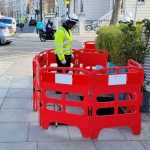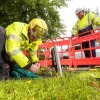Citizens Advice Blasts Poor Reliability of UK Mobile and Broadband ISPs
The Citizens Advice agency has claimed that 6 out of 10 broadband users have suffered from slow speeds or had their connection stop working in the last year. As a result they are calling on the government to “strengthen the voices of telecoms consumers” by establishing a consumer advocate.
According to Citizens Advice and their ComRes commissioned interview of 4,127 British adults (conducted between 12th and 16th of January 2018), problems with broadband speed and reliability have already disrupted the ability of some consumers to work or study (24%), pay bills or bank online (16%), or connect with friends and family (21%).
On top of that over a third of respondents to the study said they felt as if the government does not take into account the interests of ordinary service users when it comes to mobile and broadband issues.
Advertisement
Summary of Key Survey Findings
* 33% of 25-34 year olds said a broadband service issue had a fair or great amount of impact on their ability to work or study.
* Broadband customers spent on average 2.4 hours trying to resolve an issue of poor or no service.
* A quarter of those surveyed felt they could not trust their broadband provider to resolve their problem quickly.
* 26% of those who switched broadband provider experienced delays.
In response the consumer group has called on the government to establish a telecoms consumer advocate as part of their upcoming Consumer Green Paper, which is due to be published very soon. Citizens Advice claim this would “ensure telecoms consumers have the same representation as other essential markets like energy and water.”
However the above proposal sounds an awful lot like Ofcom’s existing Communications Consumer Panel (CCP), which arguably hasn’t been as effective as some might have hoped. Most people don’t even know it exists and the panel hasn’t really been vocal enough around some of the most common consumer issues.
Gillian Guy, CEO of Citizens Advice, said:
“People now rely on their broadband and mobile connection for the day to day running of their lives.
Yet the majority of people continue to face significant disruptions that can waste their time and stop them from being able to pay their bills, bank online, study, work or connect with family and friends.
The government’s Consumer Green Paper is an opportunity to strengthen the voices of telecoms consumers by establishing a consumer advocate in broadband and mobile markets to reflect how essential these services are to people.”
The agency is certainly right to say that “consumers face more problems in the mobile and broadband markets than other essential markets like energy and water,” although in fairness this isn’t exactly an apples to apples style comparison. Digital data networks reflect a radically more complex, variable and dynamic market than linear utility services like gas, electricity or water.
Broadband connectivity in particular comes via many different technology and cable types, which can be affected by a huge variety of different issues that may occur both inside your home (e.g. slow wifi, faulty routers etc.) or within the operator’s network (e.g. network congestion, copper line interference etc.). Suffice to say that no consumer advocate is going to be able to truly fix issues that are so often inherent to such technologies.
Advertisement
At the same time it’s worth noting that a lot of big changes are already on the way. For example, the ASA and Ofcom are both working to improve how broadband services are advertised (here and here) and a new Automatic Compensation system is due to be introduced from 2019 that may help to improve service quality (here). Lest we forget the new quality standards being imposed upon Openreach (BT) by the regulator and other changes.
On top of that the on-going rollout of so-called “superfast broadband” (24Mbps+) networks and future “ultrafast broadband” (100Mbps+) platforms should spread some natural improvements, particularly where “full fibre” (FTTP/H) infrastructure is deployed. However the latter will take many years to reach a significant level of UK coverage.
Meanwhile the Government’s new ‘Consumer Green Paper’ is aiming to make a few changes of its own, such the simplification of Terms & Conditions (T&Cs), measures to protect people against “unexpected payments” arising from subscription services (e.g. reoccurring home delivery of products that you didn’t know existed) and more powers to impose civil law fines against companies that breach consumer laws.
UPDATE 26th Jan 2018 – 2:50pm
Advertisement
UK ISP Gigaclear has jumped in with a comment.
Matthew Hare, Chief Executive of Gigaclear, said:
“This report again reinforces that UK consumers, particularly those in rural areas, are often struggling with slow and unreliable broadband. Quality broadband connectivity is no longer a ‘nice to have’ commodity, it is a necessary utility alongside electricity and water. It’s imperative that the government not only realises this now, but puts the right policies and budgets in place to combat this issue head on.
The suggestion of a Government appointed advocate is a positive move in ensuring this issue is elevated, particularly following the recent ASA ruling which denies the need to provide clarification around advertised fibre broadband services. Consumers need clarity and support about the services available to them and the choices they have.
In addition, the industry needs to further invest into an ultrafast full fibre broadband infrastructure. Until there is a national plan to make full fibre broadband available to everyone in the UK, many consumers are going to be saddled with second-rate connections. We need to act now to ensure that everybody in the UK has access to the connectivity that secures our digital future.”
Mark is a professional technology writer, IT consultant and computer engineer from Dorset (England), he also founded ISPreview in 1999 and enjoys analysing the latest telecoms and broadband developments. Find me on X (Twitter), Mastodon, Facebook, BlueSky, Threads.net and Linkedin.
« Sky Say Goodbye to NOW TV Combo and Hello NOW Broadband

















































Comments are closed